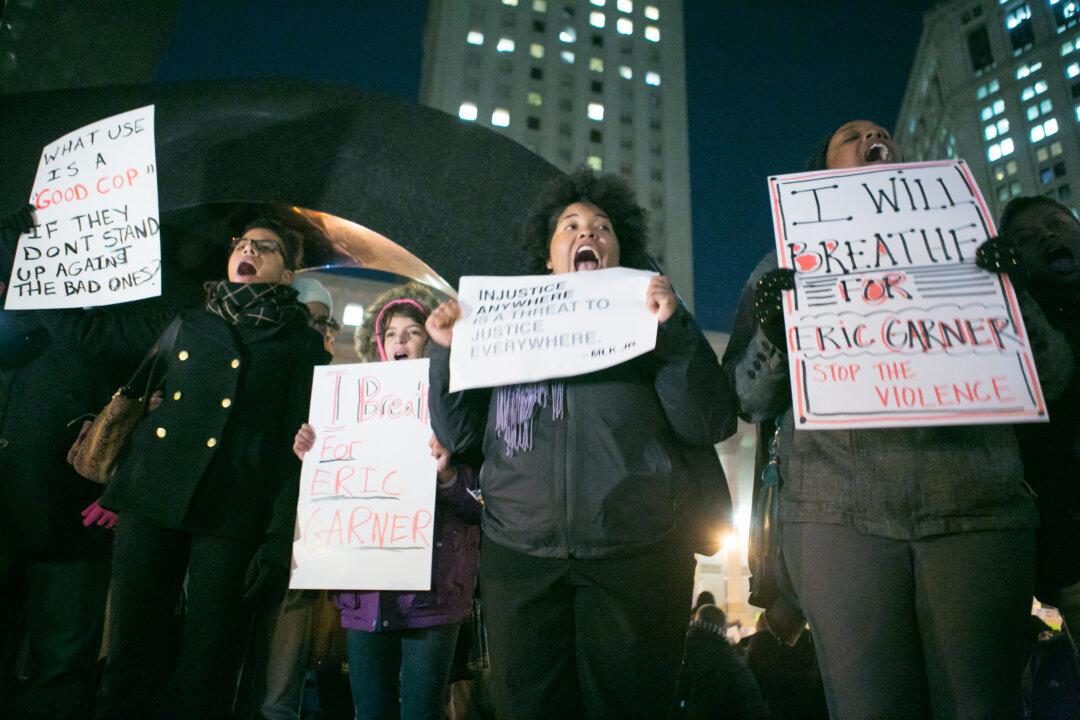Following the lack of an indictment in two widely-publicized cases involving police homicides in Ferguson, Mo., and Staten Island, New York City, calls for grand jury reform are growing louder.
In the case of Eric Garner, where a police officer placed Garner in a banned chokehold tactic while arresting him for allegedly selling untaxed cigarettes, several groups have filed a court petition requesting that transcripts and minutes from the grand jury proceedings be made public.
In New York, as in all states that have grand juries, what happens during those proceedings are secret. The foundation for grand jury secrecy dates back to colonial-era England, as a means to protect the jurors and the accused against intimidation or harassment.
More Transparency, More Accountability
But Harvard Law School professor Ron Sullivan says that secrecy also prevents the defense from being able to present evidence to the jury, and blocks them from accessing critical information that only the prosecution knows—things that can hinder a fair trial.
“My personal view is that claims of secrecy are outdated, and an outmoded way of thinking about the grand jury. More information in criminal cases is more fair,” said Sullivan via a phone interview. He is also director of the Harvard Criminal Justice Institute.
The grand jury has failed to bring criminal charges against the officer. But if transcripts are made public in Garner’s case, Sullivan says “relevant information” could emerge for both the federal civil rights investigation and for Garner’s legal representatives, who are bringing a civil lawsuit against the city.
For example, details about NYPD officer training and tactics can shed light on whether the officer’s use-of-force was justified.
“A state actor” can be sued for depriving Garner of his Fourth Amendment right to be free from “unreasonable search and seizure,” said Sullivan.
The New York Civil Liberties Union has argued in their petition that the public has an interest in knowing the details of the Garner investigation, because the public’s confidence in the integrity of the legal system “has been severely shaken by the decision of the grand jury not to return an indictment in the Garner case, despite shocking and seemingly unambiguous video evidence that has made an indelible mark on the public consciousness.”
A judge is due to hear their arguments on Feb. 5, along with the other parties who have filed a petition—the city public advocate’s office, the Legal Aid Society, and the New York Post.





